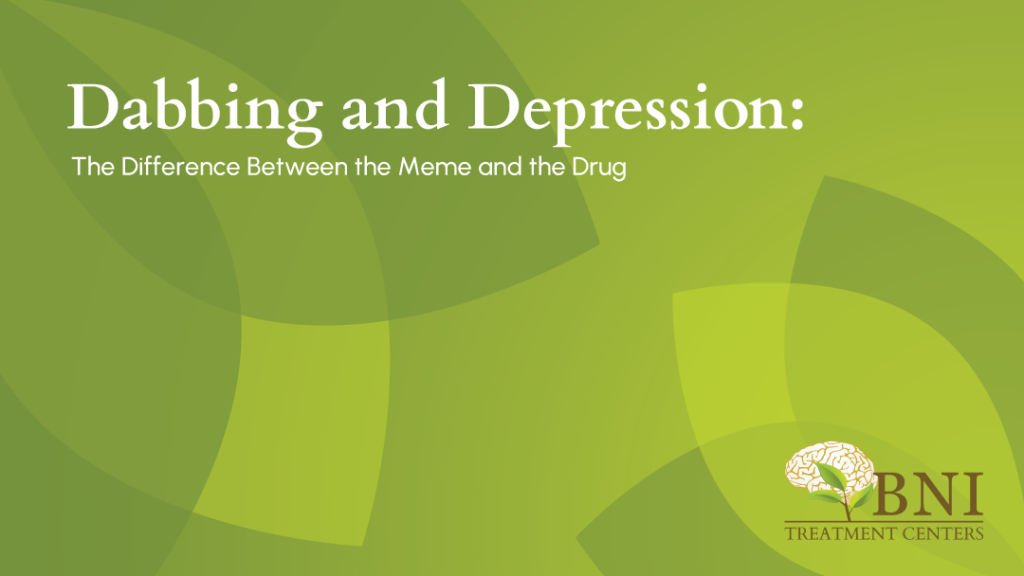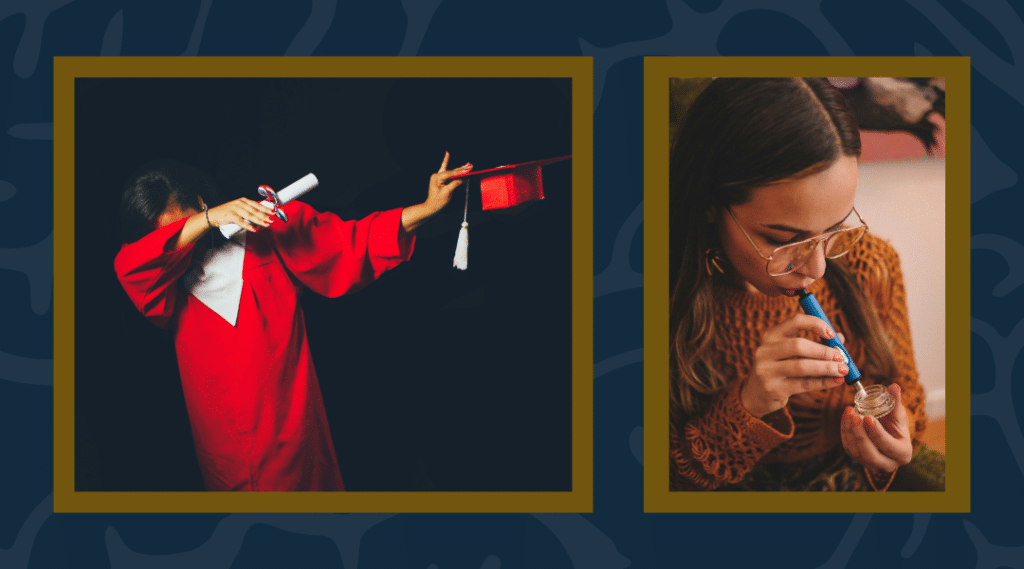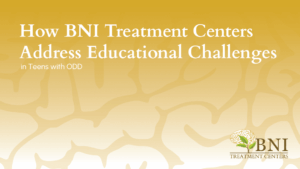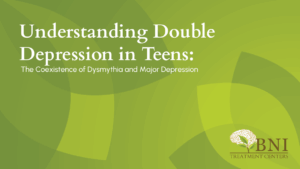
A little pot couldn’t hurt, right?
With the popularity of marijuana increasing year after year, roughly 1 in 3 seniors in high school report having recently used marijuana. Many parents are left uneasy, but accepting – teens like to experiment, and marijuana is often considered a less damaging substance than others like alcohol. However, teens often have significant mental health consequences from THC consumption.
At BNI Treatment Centers, we believe understanding the balance between substance use and mental health is not just important, but necessary. That’s why our psychiatrists lead our teams, working with your teen at all stages of their mental health and recovery journey.
Today, we’re going to talk about dabbing and how this can affect your teen.
What Is Dabbing?
Dabbing is the act of smoking or inhaling “dabs”, also known as butane hash oil (BHO) or marijuana extract.
Dabs are made by extracting THC and other active ingredients from marijuana, creating a concentrated oil. The specific final product will vary slightly but generally will take on a sticky, wax-like appearance. This final product, the “dab”, is far more potent than the strand of marijuana itself, as a small amount of oil is often distilled from several plants.
These are heated or vaporized, then inhaled, typically using modified “bong” setups, heating coils, or specialized vape pens. Due to the concentrated amount of THC in the oil, each dab results in both higher levels of intoxication and greater levels of mental health risks.

What Are the Signs Your Teen Is Dabbing?
If you’re concerned your teen might be dabbing, there are several key things to watch out for. While these don’t necessarily mean your teen is taking dabs for sure, they could be strong indicators:
- Since dabbing extracts THC using heat, “dab pens” or vapes are used. Look out for vape pens or heating utensils like nails or coils.
- Look for pieces of parchment paper, especially with sticky resin in them. Dabs often come in wrapped chunks of wax concentrate, which leaves a residue behind.
- Bloodshot eyes, smelling like marijuana, or giddiness. Dabs are a THC product, and so all the signs of “being high” can hint that your teen is dabbing.
What Are the Effects of Dabbing?
While marijuana has a reputation as a “safe” substance, this is not the case. Prolonged THC use has been linked with many mental health conditions, such as suicidal thoughts, cognitive decline, hallucinations, and depression.
In addition to the long-term health consequences, there are short-term risks. If someone takes far more THC than their body is capable of handling, this can result in marijuana overdose, or greening out. This is particularly likely given the potency of dabs.
Greening out can result in physical symptoms, like headaches, nausea, seizures, and unconsciousness. It can also result in psychological symptoms, such as paranoia, anxiety, hallucinations, and feelings of intense sadness or depression.
Is There a Link Between Dabbing and Depression?
While dabbing does not necessarily cause depression, there are significant connections between the two. Recent research at Columbia University finds that teens who take THC products are 2 to 4 times more likely to develop psychiatric conditions like depression than those who don’t.
Additionally, illicit substance use is often a sign of underlying mental health or behavioral problems. Anxiety, social isolation, stress from school, and depression can all lead to substance use. This underscores the importance of discussing any marijuana use or dabbing with your teen and getting them the support they need.
How Should You Talk to Your Teen About Dabbing?
Although recreational cannabis is legal for adults in California, it’s critical to address any teen or adolescent who may be dabbing. Not only are there strict legal age limits around THC use, but it can have serious health consequences.
If you approach your teen about this, there are a few things to keep in mind.
Remember to approach them without judgment. This can be hard, as we all want our teens to be safe and have a better life than we did! But to connect and help your teen, they need to feel as though you will try to understand them, not judge them.
Describe your concerns, not their behaviors. For example, if you say “You’ve been really withdrawn lately”, it’s easy for them to respond with “No I haven’t”. However, if you instead use language that describes your own feelings “When I only see you a few minutes a day, I feel worried you’re pulling back from us” it’s much harder for them to dismiss your concerns.
Remember to listen. Research finds that teens who feel like their parents will listen to them are more likely to talk about their problems, have higher levels of happiness, and have better health or recovery outcomes. Listening is far more important than lecturing when it comes to teen conversations.

Teen Depression Treatment in Los Angeles
Depression is a reality that many teens face every day, with the CDC reporting that nearly 40% of all high schoolers feel persistently sad or hopeless. These feelings are often amplified by potent substance use, such as dabbing.
When depression and dabbing go hand in hand, the challenge your teen faces becomes more complicated. Is it important to treat their depression first, or the substance use? What if they’re using the drugs to cope with their depression? That’s why it’s critical to find specialists who can help you and your teen navigate these questions.
At BNI Treatment Centers, we specialize in treating these complex dual-diagnosis situations. We involve our psychiatrists at every stage of your teen’s treatment, so they are equipped with the tools they need to recover. We provide 24/7 care, and extensive substance use and depression treatment options. If you would like to know more about how we can help your teen today, call us at (888)-522-1504.
BNI Treatment Centers: Science-based, evidence-backed, compassion-led.




